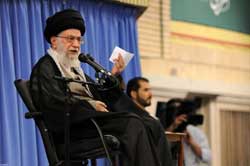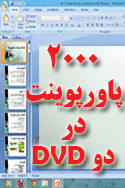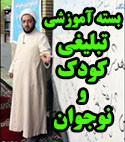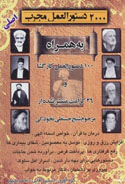Ayatollah Khamenei:Nothing can silence Bahrainis anymore

Leader of the Islamic Revolution Ayatollah Sayyed Ali Khamenei addresses a meeting with families of Iranian military advisers who lost their lives in the fight against terrorists in Syria as well as those killed in a 1981 terrorist bomb attack in Tehran on June 25, 2016.
Leader of the Islamic Revolution Ayatollah Sayyed Ali Khamenei addresses a meeting with families of Iranian military advisers who lost their lives in the fight against terrorists in Syria as well as those killed in a 1981 terrorist bomb attack in Tehran on June 25, 2016.
Leader of the Islamic Revolution Ayatollah Sayyed Ali Khamenei has strongly criticized the revocation of the citizenship of a senior cleric in Bahrain, saying Bahraini youths cannot be silenced anymore.
“In Bahrain, a ruthless and arrogant minority is oppressing the majority; and has now carried out an act of aggression against the diligent scholar, Sheikh Isa Qassim. This is insanity and stupidity,” the Leader said on Saturday.
Ayatollah Khamenei elaborated that it was Sheikh Qassim who prevented the mass protests in Bahrain from being driven to extremism.
“These fools do not understand that eliminating Sheikh Isa Qassim means removing the barrier in front of the spirited Bahraini youths against the government. Nothing can silence these youths anymore,” the Leader said.
Bahrain on Monday revoked the citizenship of Sheikh Qassim, accusing him of sowing “sectarianism and violence.”
Bahrain’s Interior Ministry claimed in a statement that Sheikh Qassim actively sought the “creation of a sectarian environment” through his connections with foreign powers.
The ministry claimed that the cleric had misused his religious position to advance a political agenda and serve foreign interests.
The Bahrain Center for Human Rights said in a statement that the decision against the top Shia cleric “is yet another blow to freedom of speech and expression in Bahrain” and is “part of an escalating crackdown on freedoms and rights.”
It urged the government to “immediately and unconditionally reinstate the citizenship of Qassim and all those affected,” saying that it had documented evidence of at least 261 cases since 2012.
Leader of the Islamic Revolution Ayatollah Sayyed Ali Khamenei addresses a meeting with families of Iranian military advisers who lost their lives in the fight against terrorists in Syria as well as those killed in a 1981 terrorist bomb attack in Tehran on June 25, 2016. ©khamenei.ir
Elsewhere in his speech, Ayatollah Khamenei pointed to the enemy plots against Iran, saying, “They created Daesh [Takfiri terrorists] to defeat the Islamic Republic. Iraq and the Levant were a prelude to crippling Iran.”
However, the Leader stressed, “It was the might of the Islamic Republic that brought them to their knees.”
Iran has recently arrested a number of Takfiri elements seeking to carry out terror attacks in the country.
Iran’s Intelligence Minister Mahmoud Alavi said on June 21 that as many as 10 terrorists were apprehended from June 14 to 20 in Tehran and three border and central provinces.
According to the minister, the militants were planning remote control explosions, suicide bombings, and car bombings against bustling areas.
A day earlier, Iran’s Intelligence Ministry released a statement about the foiled bombing plots by Takfiri-Wahhabi groups.
Wahhabism is the radical ideology dominating Saudi Arabia. It forms the dogma of the Daesh Takfiri terrorist group, which is wreaking havoc mainly in Iraq and Syria.
Ayatollah Khamenei made the remarks in a meeting with the families of Iranian military advisers killed in Syria while on a mission against the Takfiri terrorists wreaking havoc in the Arab country.
Iran maintains military advisers in Syria, where the government of Syrian President Bashar al-Assad is fighting an array of foreign-backed militant forces, including, but not limited to, those of the Daesh terrorist group.
Syria has been gripped by a foreign-backed militancy since March 2011. According to United Nations Special Envoy for Syria Staffan de Mistura, over 400,000 people have been killed in the conflict.
Also meeting with the Leader on Saturday were the families of the victims of a bomb attack in Iran in early 1980s.
On 28 June, 1981, a powerful bomb went off at the headquarters of the Islamic Republic Party (IRP) headquarters, where the party’s leaders were holding a meeting. Tens of Iranian officials, including then Head of Supreme Judicial Council Ayatollah Mohammad Beheshti, were killed in the bombing by the terrorist Mujahedin-e Khalq Organization (MKO).
The MKO has carried out numerous terrorist attacks against Iranian civilians and government officials over the past three decades. Out of the nearly 17,000 Iranians killed in terrorist attacks since the victory of Iran’s 1979 Islamic Revolution, about 12,000 have fallen victim to MKO’s acts of terror.
مطالب مشابه با این موضوع:
وبگــــــــــردی طلبۀ پاسخگو
- فایل اعمال و رفتار های خلاف قانون جناب آقای حسن روحانی
- در کنج خانه طلبهها چه میگذرد؟
- سکوت چند ساله مسئولان حوزه در قبال حملات وحشیانه به طلاب!
- می گویند که مملکت مملکت آخوندهاست!!
- یک ماجرای تلخ که خانم ها با تأمل بیشتر بخونند
- جریان های تکفیری موجود در عراق و نحوه شکل گیری آنها
- سیر تکاملی تفکر سلفیه چگونه بوده است؟
- بداء در قرآن و حدیث چگونه مطرح شده است؟
- پیامبر (ص) با مخالفین خود چگونه بر خورد می کرد؟
- سبک زندگی حضرت زهرا سلام الله علیها
- ملاک کرامت و شرافت افراد، انسانیت است یا جنسیت؟
- رنگ و پوشش های رنگی در اسلام
- حجاب، زنان را افسرده میکند و مانع پیشرفت اجتماعی آنهاست!!!
- علوم لدنی معصومین
- مگر ولی فقیه معصوم است که ولایت مطلقه دارد؟
- اگر خدا ازعاقبت ما اطلاع دارد قیامت برای چیست؟
- آیا بجای نماز خوندن، پیانو یا سه تار بزنم؟
- چرا مراسم عزاداري امام حسين(ع) پيش از شهادت ايشان صورت ميگيرد؟
- چرا امام حسين(ع) در كربلا براي رفع تشنگي از خداوند طلب باران نكرد؟
دانــــــلود های مفیـــــــــــــــــــد
- دانلود پاورپوینت شناخت وهابیت و صهیونیسم و ارتباط با همدیگر
- دانلود دو پاورپوینت اجرای عید غدیر خم
- دانلود پاورپوینت احتجاج اميرمؤمنان (ع) به غدير
- پژوهشی در کلام و پیام مقام معظم رهبری پیرامون ماه رمضان
- خطبه شعبانیه و خطبه امیرالمومنین(علیه السلام) پیرامون روزه و ماه رمضان
- دانلود پاورپوینت و pdf تفاوت های زن و مرد
- دانلود جزوه ساعات سعد و نحس(زمان نوشتن دعا)
- تقویم مذهبی شمیم یار 96 مخصوص کامپیوتر
- دانلود نرم افزار «شیعه شناسی»
- دانلود پاورپوینت ساختار خانواده و مسایل آن
- دانلود کتاب دایره المعارف جنسی
- دانلود نکات جذاب دوران عقد
- دانلود کتاب درمان سرد مزاجی و بی میلی جنسی بانوان
- دانلود کتاب حسادت کودکان
- دانلود کتاب درمان خستگی وناتوانی جنسی
- دانلود پاور پوینت اسیب های ازدواج وخانواده
- دانلود پاورپوینت هشت گام برای تحقق رویا به واقعیت
- دانلود پاورپوینت تقویت اراده
- دانلود پاورپوینت موفقیت وروشهای رسیدن به ان
- دانلود پاورپوینت هنر رفتار با افراد دشوار
- دانلود پاورپوینت جملات جالب وجذاب روحیه بخش بزرگان
- دانلود پاورپوینت راههای مقابله ودرمان استرس
- دانلود پاورپوینت نیازهای اساسی کودکان
منبــــرهای مکــــــــــــــــــتوب
- منبر مکتوب: روز عرفه و فرصت ها
- منبر مکتوب: سبک زندگی امام باقر علیه السلام
- منبر مکتوب: سه نیاز مومن (امام جواد علیه السلام)
- سخنرانی سلسله ای و چند جلسه ای مناسبت ماه رمضان
- دانلود 30 جلسه سخنرانی ماه مبارک با موضوع تنها مسیر
- موضوعات پیشنهادی سخنرانی برای محرم
- فضائل حضرت قمر بنی هاشم علیه السلام
- برکات وجود ابا عبدالله علیه السلام بر عالم
- بررسی بُعد اخلاقی،عبادی و عرفانی عاشورا
- آخرين وصيت امام حسين عليه السلام
- اولین علت رویاروی در کربلا؛ دوری از یاد خدا
- هميشه حزن؟ شادي چرا نه؟ - شب دهم محرم
- چرا نفرين ؟ - شب نهم محرم
- نماز ظهر عاشورا - شب هشتم محرم
- فلسفه عزاداری - شب هفتم محرم
- دفاع از دین - شب ششم محرم
- فلسفه حضور خانواده سيد الشهداء - شب پنجم محرم
- علم امام علیه السلام به شهادت - شب چهارم محرم
- فقدان شرایط امر به معروف و نهی از منکر- شب سوم محرم
مناظرات طلبه پاسخگو
جدیدترین های زبان انگلیسی
- Islam and Its Social System
- Duties of Man Towards the People
- Islam Various Systems
- Attributes of The Real Follower of Imams in Their Teachings
- Who is a Real Shia Muslim?
- RIGHTS OF SCHOLARS
- Islam Attacks Slavery 1
- The Advantages of Religion 2
- The Clearest Reason for Free Will
- Sheikh Zakzaky to be released on bail
- Brief History of Religions
- Is It Necessary For Man To Follow A Religion?
- The Advantages of Religion 1
- Who Is Almighty Allah?
- What are the differences between Shia and Sunni Muslims؟
- The Rights Islam Offers to Women
- How I find that Islam does not Oppress Women?
- URGENT MEDICAL TREATMENT FOR SHEIKH ZAKZAKY
- The motto of this year’s book fair is “Reading Is Ability”.
- Fundamental principles of Islam
بیشترین دانلود ها
- دانلود صوتي تکنیک های نزدیکی زن و شوهر (108160)
- دانلود رایگان کتاب خواص سوره های قرآن (55002)
- دانلود پاورپوینت بسیار مفید مهارت های زندگی (37601)
- دانلود پاورپوینت و pdf تفاوت های زن و مرد (34125)
- دانلود كتاب مسائل جنسي و زناشوئي در احاديث (33898)
- دانلود کتاب دایره المعارف جنسی (32153)
- دانلود پاورپوینت های آموزش پیش از ازدواج (30689)
- دانلود بسیار مفید پاورپوینت آئین همسرداری (30087)
- دانلود 110جلد کتاب بحارالانوار علامه مجلسی ره (29729)
- دانلود پاورپوینت آموزشی بررسی رابطه دختر و پسر (29722)
- دانلود كتاب دختران خوب به آسمان می روند دختران بد به همه جا (28655)
- دانلود کتاب آموزش جنسی آقایان (28455)
- دانلود كتاب فرق و مذاهب كلامي استاد رباني گلپايگاني (28353)
- دانلود کتاب درمان سرد مزاجی و بی میلی جنسی بانوان (28332)
- دانلود نکات جذاب دوران عقد (27875)
- دانلود نرم افزار «شیعه شناسی» (26247)
- دانلود کتاب درمان خستگی وناتوانی جنسی (25417)
- دانلود پاورپوینت تقویت اراده (23890)
جدیدترین مطالب سایت
- پاسخ به شبهات ولایت (4726) بازدید
- پاسخ به شبهات ولایت (4520) بازدید
- اذان در جامعه اسلامی نماد چیست ؟ و چرا فقط سه بار در روز تکرار می شود ؟ (3914) بازدید
- باتوجه به عادل بودن خداوند چرا بعضی از انسانها را ناقص الخلقه آفریده است ؟ (3993) بازدید
- ویژگی خاص قرآن چیست که کسی نمی تواند مانند آن را بیاورد ؟ (4259) بازدید
- با توجه به ترک خود ارضایی عوارض آن هنوز در من هست چگونه آن را برطرف کنم ؟ (5635) بازدید
- آیا بدن اخروی مانند بدن مادی است ؟چهره ی واقعی انسان در قیامت چگونه است ؟ (5031) بازدید
- آیا ادعای ملاقات امام زمان (عج) از جانب برخی افراد صحت دارد ؟ (4551) بازدید
- چرا به اصول و قواعد دین اسلام توجه نمی شود و پذیرش آن از سوی پیروان ادیان دیگر سخت است ؟ (4924) بازدید
- فلسفه وجود لباس روحانیت در عصر حاضر چیست ؟ (3572) بازدید
- آیا وظیفه یک روحانی تنها راهنمایی مردم و فعالیت و تدریس در حوزه هاست ؟ (2962) بازدید
- آیا نظریه تناسخ از دیدگاه اسلام پذیرفته شده است ؟ (5279) بازدید
- آیا توصیف بهشت و جهنم در قرآن تمثیل هایی برای درک بهتر آن جهان است ؟ (4873) بازدید
- با توجه به اینکه اسلام کاملترین دین هست چرا ما نسبت به کشور های غیر مسلمان عقب مانده تر هستیم ؟ (6784) بازدید
- نقش امام و رهبر در جامعه اسلامی چیست ؟ و اگر نباشد چه اتفاقی می افتد ؟ (4570) بازدید
پربازدیدترین های سایت
- زنی هستم که میخواهم به شوهرم خیانت کنم!!! (605485)
- آيا زن شوهر دار بخاطر رفع نیاز جنسی اش ميتواند صیغه شود؟ (501129)
- دوست دخترم حامله شده چکار کنم؟ (398677)
- میل جنسی زیادی دارم و به شدت داره منو عذاب می ده (340670)
- دیدن فیلم های مبتذل زن و شوهر برای تحریک شدن جنسی (217886)
- چگونه همسرمان را آماده آميزش جنسي كنم؟+18 (213188)
- حکم شرعی نزدیکی از پشت! (208203)
- خانم هایی که می خواهند طلبه شوند بخوانند!!! (205691)
- زنم رابطه جنسی برقرار نمیکند!!! (199716)
- از تجربه های تلخ و تکان دهنده دختران بخوانید شاید... (172440)
- گناه با محارم خود داشتم! (146450)
- رابطه جنسی دهانی حكم چيست؟ (131027)
- محرمات و مکروهات و مستحبات حائض+حکم ورد به امکان مقدسه (129552)
- به رابطه خانمم با خواهر زاده اش مشکوکم؟ (123441)
- سفارش اسلام در مورد آمیزش صحیح چیست؟ (99095)
- نام كتاب حضرت نوح و حضرت ابراهیم؟ (97110)
- با زنان چشم سبز ازدواج نکنیم؟ (94852)


















